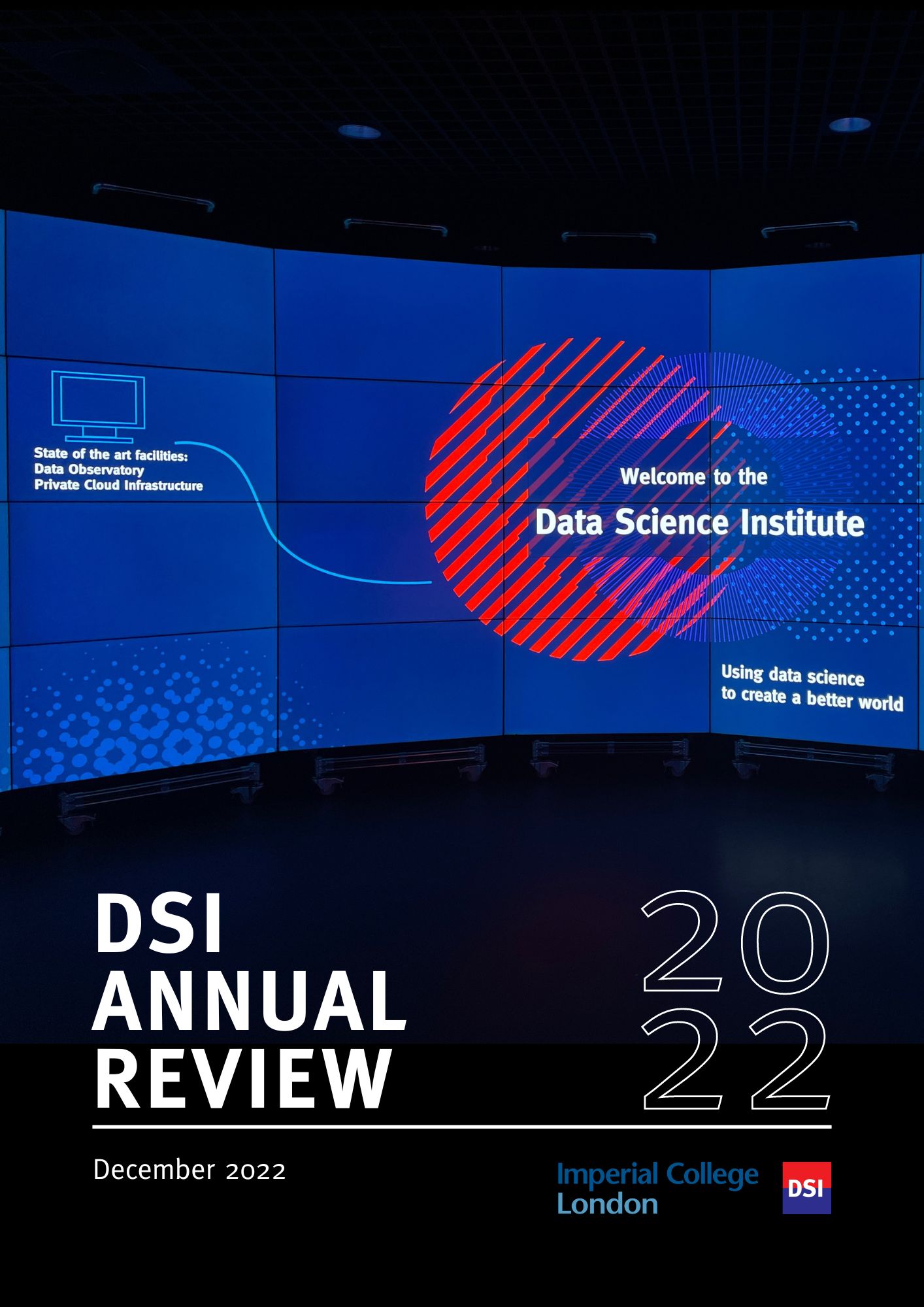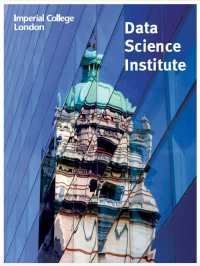 The Joint Lab for Applied Data Science is a collaboration between the Data Science Institute and Zhejiang University (ZJU), China. The aim of the Lab is to combine the expertise and existing research activities in data-driven scientific research and innovation at ZJU and Imperial and to build a world-class Lab for grand challenge applications. Such applications may include bioengineering, brain science, energy systems, meterology and materials science. The Lab will also act as the base to coordinate the ever growing collaboration between the two institutions.
The Joint Lab for Applied Data Science is a collaboration between the Data Science Institute and Zhejiang University (ZJU), China. The aim of the Lab is to combine the expertise and existing research activities in data-driven scientific research and innovation at ZJU and Imperial and to build a world-class Lab for grand challenge applications. Such applications may include bioengineering, brain science, energy systems, meterology and materials science. The Lab will also act as the base to coordinate the ever growing collaboration between the two institutions.
Significant progress has also been made in progressing joint research initiatives. The main achievements on our joint research can be summarized through three ongoing projects:
1. Data driven analysis and visualization for Chinese migration
This research project is a collaboration between Prof Hong Mi and Prof. Yike Guo, working closely with the DSI team on modeling demographic features of the immigrant population in China, using micro data from National Health and Family Planning Commission of PRC. The collaboration has made significant progress with an impressive result on analyzing dataset and established an efficient model based on the revised Keyfitz model.
This outcomes of this project formed the basis for a new joint proposal in May 2015 to the UK/China ESRC-NSFC with the title of "Data-driven study on population migration and urbanization in China". Recently, we have turned the analysis result into an impressive visualization system which illustrates the human migration trend and causing factors based on the different living index for immigrant and their families. We have visualized this data on our new GDO and it has been demonstrated to senior Chinese officials including Chinese Ambassador to UK, Mr Xiaoming Liu and President Xi Jingpin, for his state visit to UK in this October.
2. Visual analytics Data mining for big scientific literature dataset:
This collaboration is between Prof. Yueting Zhuang and Prof. Yike Guo. Dr Weiming Lu, a Lecturer from Prof Zhuang's team, is currently visiting the DSI and working with us to build a visual analytics and data-mining platform for big scientific literature. The work will utilize our big data processing and analysis capability and the experience of scientific literature analysis from ZJU, to design and develop an interactive tool to understand the development of scientific ideas and topics, and then try to create a survey for the topic automatically. The project will be finished within 2015, and will also be deployed to the GDO. It will cause significant impact to the research community. This research work is now extended to the collaboration with world’s leading publisher Reeds Elsevier. The goal of this work is to establish the world’s most comprehensive research intelligence analysis platform based on Elsevier’s rich contents on scientific publications of the world.
3. CFD simulation with reduced order acceleration:
This is a joint research project between Prof Gang Bao and Prof Christopher Pain. Prof Bao visited Imperial College several times to establish the collaboration, and Dr. Zhi Lin, a researcher from Prof Bao's group, visited Imperial College for 3 months and delivered very good research results. He worked with Prof Pain's team on two main topics: 1) on reduced order acceleration model, they finished a successful methodology research and the result is now being written as a paper for publication. They are planning to continue this work and to try to publish 3 papers within this year; 2) on the simulation of city air pollution, they applied the existing models from Pain's group to the dataset of Hangzhou air pollution, provided by ZJU, using the data assimilation method. Based on these works, they plan to apply for a joint grant in the near future. To enhance collaboration going forward, Prof Pain is going to send two researchers (Dr Fang and Elsa) to ZJU to continue the research and provide course training on their models / tools. This collaboration has a significant impact to the future development of the Lab. Data assimilation research is becoming one of the main focuses of the DSI and Prof. Bao is a world leader in the area of Inverse Problem. These two areas are very closely related. The DSI is currently establishing of a Data Assimilation Lab, headed by Prof. Christopher Pain, with participation from world leading scientists in this field. It is expected that this research laboratory will catalyze the collaboration between IC and ZJU in this research field.
The Lab is currently running a visiting researcher scheme, and to date three researchers have been hosted at the Data Science Institute.
Please contact Jiangli Wang for more information.
Contact us
Data Science Imperial
William Penney Laboratory
Imperial College London
South Kensington Campus
London SW7 2AZ
United Kingdom
Email us.
Sign up to our mailing list.
Follow us on Twitter, LinkedIn and Instagram.

